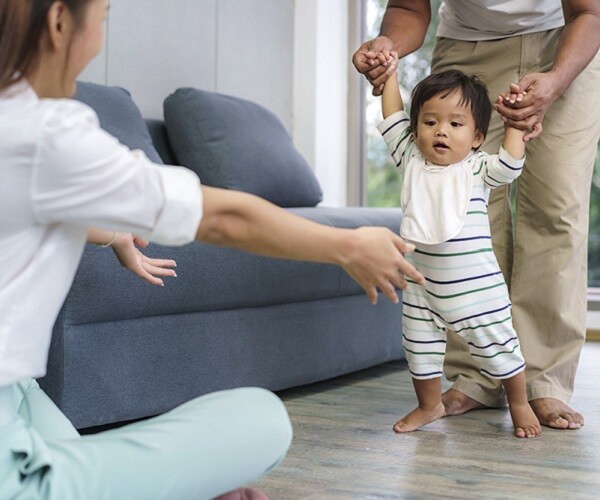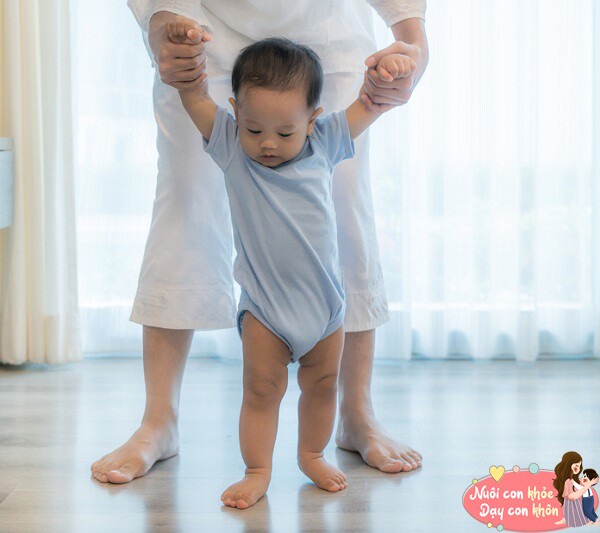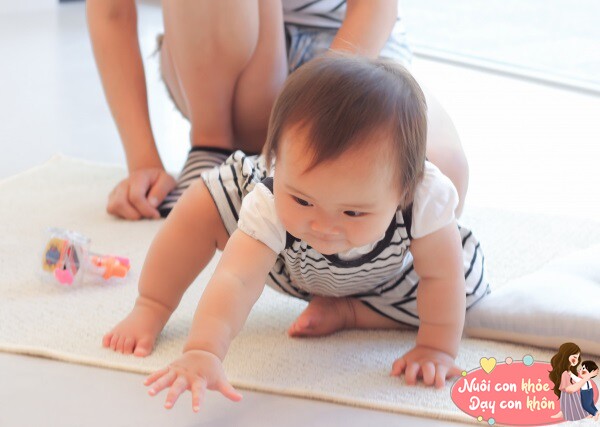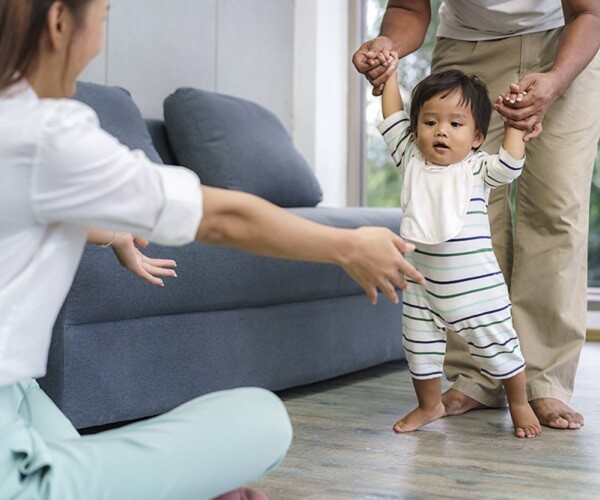

Is there a link between early walking and intelligence in children?
It is a common belief that “the earlier a child starts walking, the smarter they will be.” However, there is no scientific research to date that specifically links a child’s IQ to their early walking abilities.
Numerous studies have indicated that a child’s cognitive development is influenced by a multitude of factors, including genetics, educational environment, nutrition, and life experiences, rather than solely relying on their walking milestones.
A child’s physical development follows certain rules. During infancy, bone growth occurs in distinct stages. If a child walks too early, it can lead to differences in bone development. Walking before their bones are ready can impact their bone health, resulting in issues like bow-leggedness, flat feet, or long-term joint problems.

Is early walking a sign of intelligence?
In reality, from a developmental perspective, crawling plays a more crucial role in a child’s motor and cognitive development. Crawling helps children refine their sense of balance, coordination, and spatial awareness. This stage enhances their muscle strength, observation skills, and understanding of the world around them.
Crawling also has a positive impact on a child’s intellectual development. Experts suggest that children should spend approximately 800 hours crawling during the initial stages. This period is beneficial for brain development and can boost their IQ.
Most children start crawling between the ages of seven and ten months. Encouraging them to crawl and explore their surroundings fosters confidence in developing other motor skills, such as standing and walking.
Every child is unique, and this process cannot be forced to fit a specific mold. Not all children crawl before they walk. A small percentage of children skip the crawling stage and walk directly, which is entirely normal. Each child develops at their own pace, influenced by factors such as genetics, environment, and parental support. Any differences between these two groups of children may be reflected in their susceptibility to motion sickness. Children who skip the crawling stage and progress directly to walking are more prone to motion sickness due to sensory dysfunction.
This is associated with a lack of diverse motor experiences, which are necessary for the development of sensory and balance mechanisms. Of course, this is not an absolute phenomenon, but rather an increased likelihood.
Parents should monitor their child’s development, encourage age-appropriate activities, and ensure they have the opportunity to develop their motor skills naturally and safely, especially during the crawling stage.

How can parents help their children improve their crawling skills?
Provide a conducive environment
When a child reaches the crawling stage, parents should encourage them to do so. This is a crucial period for motor development, as it helps them refine the skills needed for balance and coordination. To facilitate this process, parents can choose a suitable area in the house, such as a bed or a rug in the living room, with a soft and safe surface.
Keep the crawling area clear of sharp objects and small items that could pose a hazard, and ensure it is free of breakable items. Creating a safe space allows children to feel more comfortable as they explore and move freely.
Once the area is prepared, let the child crawl freely. Encourage them to explore by placing toys in different locations to capture their attention.
Guide them with toys
Some children may be less enthusiastic about crawling, even if they have already mastered it. In such cases, parents can use toys to stimulate their interest.
For example, place their favorite toy just out of reach, and consider crawling with them, as this also strengthens your bond.

Guide your child’s crawling with toys.
Avoid forcing them
After practicing crawling, your child may feel tired and reluctant to move. Don’t worry; be patient and gently guide them. Allow them to rest and provide a snack to recharge their energy. If they truly don’t want to move, try again at a different time.
Children have limited attention spans, so it’s important for parents to be supportive and encouraging throughout their journey. Smile, use positive language, and refrain from pushing them beyond their comfort zone. Every child develops at their own pace, so avoid comparisons and embrace their unique timeline.







































